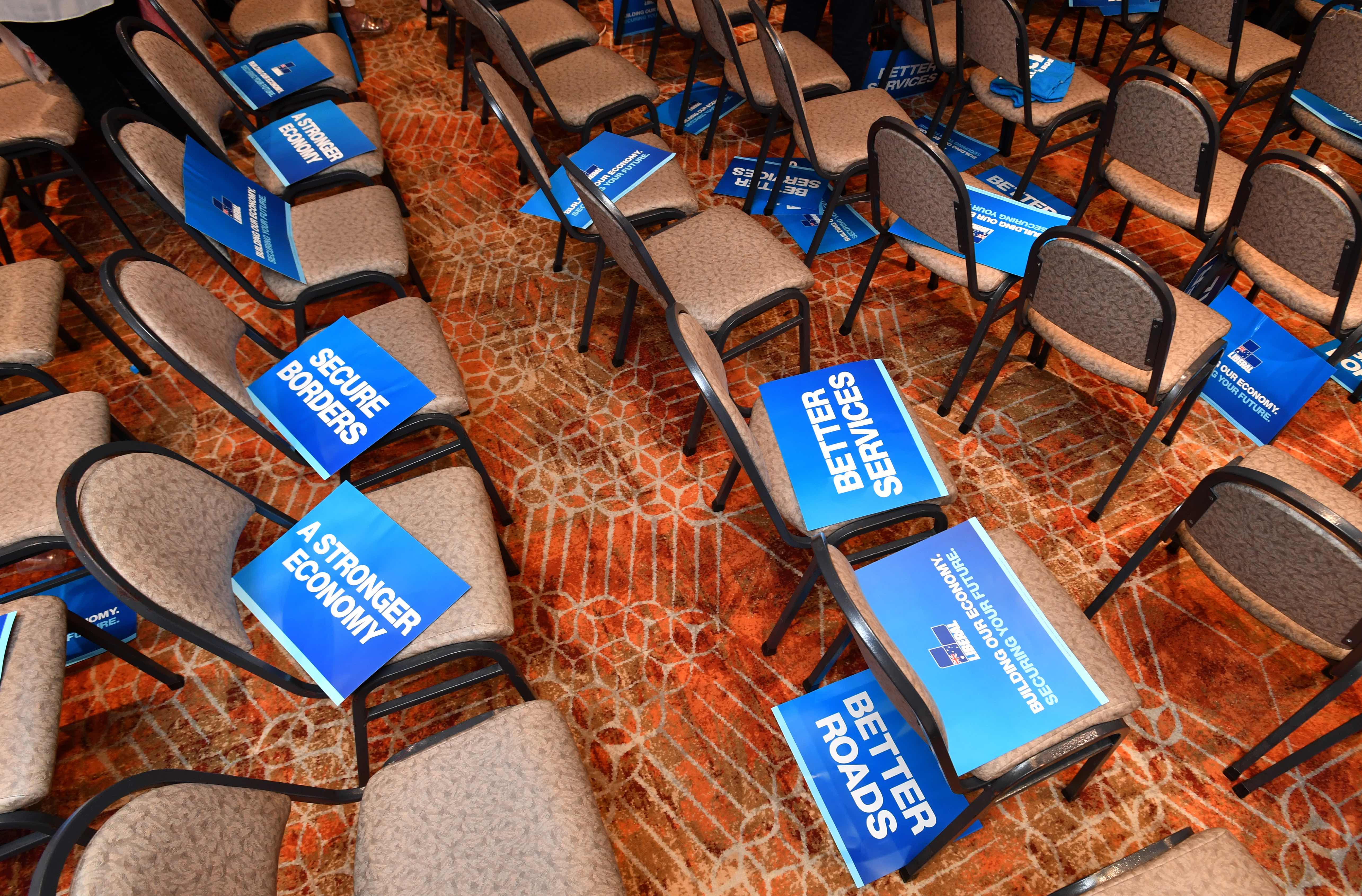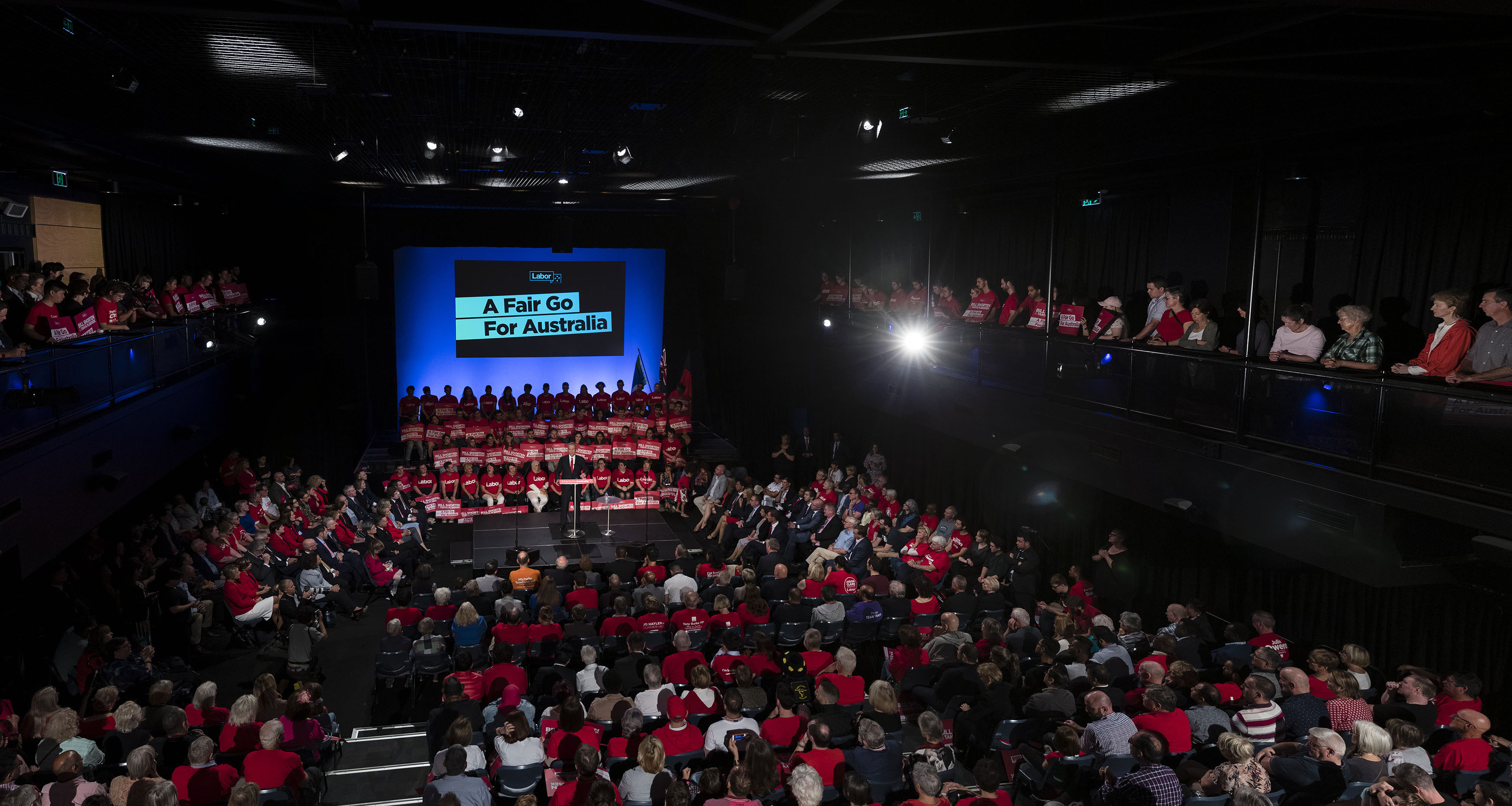
Politics & Society
What key quality should Australia’s next PM have?

As we head toward the federal election, which party has the most effective slogan? We asked a political marketing expert to assess how Australia’s parties are communicating
Published 7 May 2019
The Australian federal election campaign is heading into its end-phase and voters have been bombarded by political advertising on their TVs, radios, social media feeds, and even texts on their phones. But which party has the most effective slogan? Here, University of Melbourne marketing expert Dr Marcus Phipps gives his assessment.

This has broad appeal that plays to an Australian’s sense of mateship and fairness. It is implying that not all Australians are getting a “fair go” under the current government and that Labor is the party to correct this. By focusing on fairness it is seeking to undercut the coalitions’ perceived strength on the economy by implying that not all Australians are getting a fair go under the coalition’s economic management.
It is a clever slogan in that it is clear, simple and able to be attached to a number of hot button policy issues like schools and hospitals, pressure on family budgets, and investment in cheaper, cleaner, renewable energy. In this way the party is positioning itself as the one best ably to fairly implement these key election issues.

Politics & Society
What key quality should Australia’s next PM have?
Here the Liberals are playing to what they see as their strength – the economy. The Liberal message is that they are the only party that can be trusted to build the economy. By honing in on “building” the Liberals are focusing their economic message on their ability to grow the economy. By keeping a narrow message, they are seeking to maximise their strengths in this area and zero-in on perceived weaknesses on the Labor side.
The Liberal message is being reinforced by negative campaigning against the Labor party with a particularly focus on the leader Bill Shorten. “The Bill Australia can not afford” is an unsubtle message that Labor leader Mr Shorten cannot be trusted with the economy. It is also seeking to heighten awareness around Labor policies that involve tax rises.

As the only major party focused on regional Australia the Nationals are seeking to make this clear. Their key message is that vote for them is a vote for a strong voice for regional Australia.
The Nationals biggest threats often come from popular independent candidates within regional areas. Their message is seeking to reinforce that the Nationals have a stronger voice than these independent candidates.

Politics & Society
What does strong political leadership in Australia look like?
They would also be seeking to address concerns among some voters that the Nationals would be a minor voice within the Coalition government. They will be seeking to make it clear that they will express voters’ concerns around key issues such as water management.
The Greens tends to avoid having major slogans. This resonates with their desire to be seen as different to the major parties in focusing on substantive issues rather than slogans.
This is an effective strategy in the sense that the party’s core voters know where it stands on many issues such as the environment and there is no need for a slogan to reinforce this.
However, the Greens are having difficulty communicating across their increasingly diverse voter base. A unifying theme could help focus the overall communication strategy of the party.
One Nation are positioning themselves as the party that does not have to be politically correct. This is in line with their blunt and more extreme positions on political sensitive issues such as migration and climate change.
It appeals to a base that is disenfranchised from the major parties.
However, it is a very broad slogan that does not make it clear what One Nation stands for and is open for interpretation by individual voters.
A version of this article first appeared on Election Watch.
Banner Image: AAP